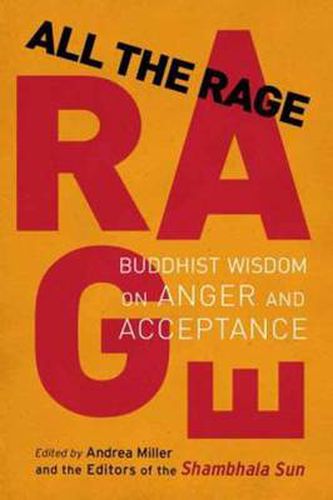Readings Newsletter
Become a Readings Member to make your shopping experience even easier.
Sign in or sign up for free!
You’re not far away from qualifying for FREE standard shipping within Australia
You’ve qualified for FREE standard shipping within Australia
The cart is loading…






Leading psychologists and meditation teachers explain how mindfulness can help us work with our anger–and ultimately transform it into compassion.
Anger. For all of us, it’s a familiar feeling–jaw clenching, face flushing, hands shaking. We feel it for rational and irrational reasons, on a personal and on a global level. If we know how to handle our anger skillfully, it is an effective tool for helping us recognize that a situation needs to change and for providing the energy to create that change. Yet more often anger is destructive–and in its grip we hurt ourselves and those around us.
In recent years scientists have discovered that mindfulness practice can reduce stress, improve mood, and enhance our sense of well-being. It also offers us a way of dealing with strong emotions, like anger. This anthology offers a Buddhist perspective on how we can better work with anger and ultimately transform it into compassion, with insight and practices from a variety of contributors, including-
Thich Nhat Hanh on how anger grows in us because we feed it through certain habits
Sakyong Mipham Rinpoche on while there is always something to complain about, blaming others will never bring about peace or happiness
Sylvia Boorstein on how there are no human enemies, only confused people needing help.
Pema Ch dr n on how when something goes wrong and we want to blame someone or someone else, we could instead take responsibility for our own tendency to blame.
Tara Bennett-Goleman on how the first step in dealing with our anger is to compassionately accept ourselves and how we’re feeling
Pat Enkyo O'Hara on how there will always be a potential energy within us. How we use this energy is the key to how we affect our own life and the lives of others
Jules Shuzen Harris on how meditation practice can help us find some space between what triggers our anger and our reaction
Christina Feldman on how it is difficult to release our anger, yet it’s a much greater hardship to hold on to it
Mark Epstein on moving beyond doer and done to
Ezra Bayda on how there is no solid self –there is no self forgiving another self. Waking from this illusion, we step into the universal heart, the essential fact of our basic connectedness. We discover that forgiveness is our true nature.
Judith Toy on her struggle to make sense of the murder of three family members and how she found Zen and forgiveness along the way
Stan Goldberg on how life doesn’t last forever. If we’ve done something to hurt others or if others have hurt us, now is the time to ask for forgiveness.
$9.00 standard shipping within Australia
FREE standard shipping within Australia for orders over $100.00
Express & International shipping calculated at checkout
Leading psychologists and meditation teachers explain how mindfulness can help us work with our anger–and ultimately transform it into compassion.
Anger. For all of us, it’s a familiar feeling–jaw clenching, face flushing, hands shaking. We feel it for rational and irrational reasons, on a personal and on a global level. If we know how to handle our anger skillfully, it is an effective tool for helping us recognize that a situation needs to change and for providing the energy to create that change. Yet more often anger is destructive–and in its grip we hurt ourselves and those around us.
In recent years scientists have discovered that mindfulness practice can reduce stress, improve mood, and enhance our sense of well-being. It also offers us a way of dealing with strong emotions, like anger. This anthology offers a Buddhist perspective on how we can better work with anger and ultimately transform it into compassion, with insight and practices from a variety of contributors, including-
Thich Nhat Hanh on how anger grows in us because we feed it through certain habits
Sakyong Mipham Rinpoche on while there is always something to complain about, blaming others will never bring about peace or happiness
Sylvia Boorstein on how there are no human enemies, only confused people needing help.
Pema Ch dr n on how when something goes wrong and we want to blame someone or someone else, we could instead take responsibility for our own tendency to blame.
Tara Bennett-Goleman on how the first step in dealing with our anger is to compassionately accept ourselves and how we’re feeling
Pat Enkyo O'Hara on how there will always be a potential energy within us. How we use this energy is the key to how we affect our own life and the lives of others
Jules Shuzen Harris on how meditation practice can help us find some space between what triggers our anger and our reaction
Christina Feldman on how it is difficult to release our anger, yet it’s a much greater hardship to hold on to it
Mark Epstein on moving beyond doer and done to
Ezra Bayda on how there is no solid self –there is no self forgiving another self. Waking from this illusion, we step into the universal heart, the essential fact of our basic connectedness. We discover that forgiveness is our true nature.
Judith Toy on her struggle to make sense of the murder of three family members and how she found Zen and forgiveness along the way
Stan Goldberg on how life doesn’t last forever. If we’ve done something to hurt others or if others have hurt us, now is the time to ask for forgiveness.